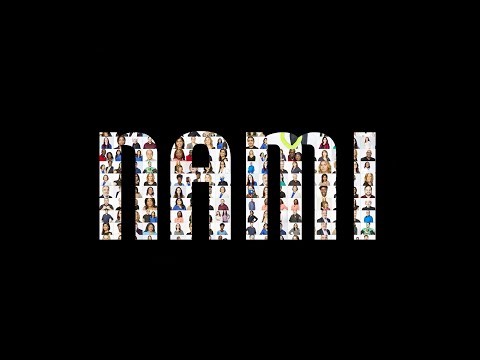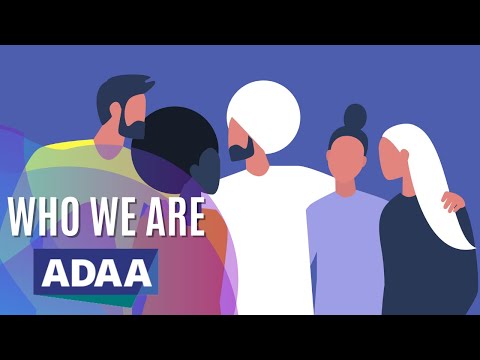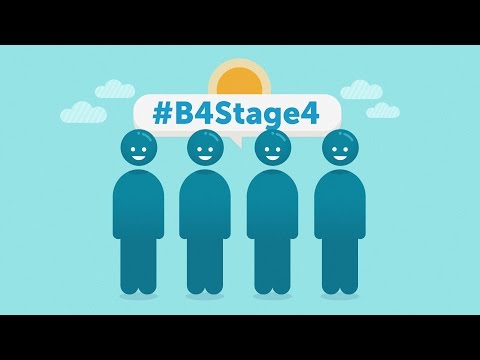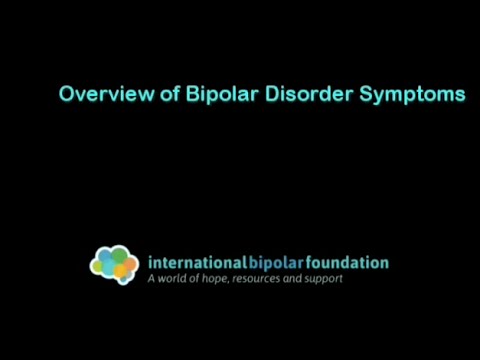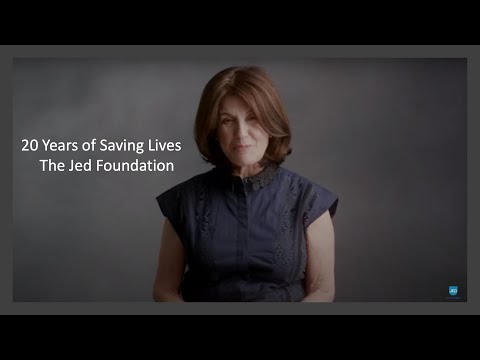9 Best Charities That Help Combat Bipolar Disorder (Complete 2024 List)
Impactful Ninja is reader-supported. When you buy through links on our site, we may earn an affiliate commission.
Learn more
Learn more
.
Hey fellow impactful ninja ? You may have noticed that Impactful Ninja is all about providing helpful information to make a positive impact on the world and society. And that we love to link back to where we found all the information for each of our posts. Most of these links are informational-based for you to check out their primary sources with one click. But some of these links are so-called "affiliate links" to products that we recommend. First and foremost, because we believe that they add value to you. For example, when we wrote a post about the environmental impact of long showers, we came across an EPA recommendation to use WaterSense showerheads. So we linked to where you can find them. Or, for many of our posts, we also link to our favorite books on that topic so that you can get a much more holistic overview than one single blog post could provide. And when there is an affiliate program for these products, we sign up for it. For example, as Amazon Associates, we earn from qualifying purchases. First, and most importantly, we still only recommend products that we believe add value for you. When you buy something through one of our affiliate links, we may earn a small commission - but at no additional costs to you. And when you buy something through a link that is not an affiliate link, we won’t receive any commission but we’ll still be happy to have helped you. When we find products that we believe add value to you and the seller has an affiliate program, we sign up for it. When you buy something through one of our affiliate links, we may earn a small commission (at no extra costs to you). And at this point in time, all money is reinvested in sharing the most helpful content with you. This includes all operating costs for running this site and the content creation itself. You may have noticed by the way Impactful Ninja is operated that money is not the driving factor behind it. It is a passion project of mine and I love to share helpful information with you to make a positive impact on the world and society. However, it's a project in that I invest a lot of time and also quite some money. Eventually, my dream is to one day turn this passion project into my full-time job and provide even more helpful information. But that's still a long time to go. Stay impactful,Affiliate Disclosure
Why do we add these product links?
What do these affiliate links mean for you?
What do these affiliate links mean for us?
What does this mean for me personally?
![]()
Bipolar disorder causes radical shifts in a person’s mood, energy, and ability to carry out everyday tasks as they oscillate between extreme emotional highs and lows. The condition affects nearly 46 million people worldwide and can have dire consequences if left untreated: around 16% of those diagnosed commit suicide and 60% develop substance abuse disorders. Fortunately, organizations around the world are working to raise awareness, provide support, and increase access to treatment for people living with bipolar disorder. So, we had to ask: what are the best charities that help combat bipolar disorder?
The best charities that help combat bipolar disorder are the Depression and Bipolar Support Alliance and the National Alliance on Mental Illness. Charities such as the Anxiety and Depression Association of America and the Brain & Behavior Research Foundation work to improve outcomes for those with bipolar disorder through research and professional development.
Whether you want to raise awareness of bipolar disorder and mental illness on school campuses, support a caregiver dealing with the hospitalization of a loved one, or help a newly diagnosed person understand their condition, there is a charity for you. Keep reading to learn more about what the best charities that help combat bipolar disorder are all about, how they work, and what your best way would be to make a contribution.
Here’s What All the Best Charities That Help Combat Bipolar Disorder Have in Common
The charities on this list were chosen based on their mission, impact and transparency ratings, and achievements.
The majority operate primarily throughout the US and Canada, but some combat bipolar disorder internationally.
Many of these charities address bipolar disorder across all ages and populations. Others focus on specific populations, such as children and young adults.
Some offer direct support by providing resources and educational materials, while others work toward a brighter future for those with bipolar disorder by funding research and professional development.
Yet, they all share a common goal; to combat bipolar disorder and help those affected to lead more productive and fulfilling lives.
These Are the 9 Best Charities That Help Combat Bipolar Disorder in 2024
Below are our favorite charities that help combat bipolar disorder (you can click on their link to directly jump to their section in this article):
Best Charities That Help Combat Bipolar Disorder
(At the end of this article we’ll also share our six-step approach on how you can select the best charity to support.)
Depression and Bipolar Support Alliance: Providing the Tools for a Better Life

🔎
Their transparency & ratings:
Charity Navigator gives the Depression and Bipolar Support Alliance a 3-star rating. GuideStar gives the charity a Platinum Seal of Transparency.
“You are not alone.”
Depression and Bipolar Support Alliance
⚒️
What they do:
The Depression and Bipolar Support Alliance helps those living with mood disorders by providing a wealth of resources including educational materials, support groups, and wellness tools. For example, they educate people about bipolar disorder through various mediums such as podcasts, webinars, and brochures. In addition, they help people living with bipolar disorder to connect with each other through peer support groups, both virtually and in person, and also publish peer stories so others can share their experiences. Furthermore, their DBSA Wellness Toolbox provides tools to help those with bipolar disorder communicate with their doctor, track their symptoms, and record progress.
🚀
What they’ve achieved:
Since their founding, the Depression and Bipolar Support Alliance has impacted the lives of millions of people affected by bipolar disorder. In 2021 alone, more than 2 million people visited their website to learn about bipolar disorder. In the same year, their network of over 450 support groups helped connect 20,300 people online and 300,000 in person. And, 10,807 people downloaded the Wellness Tracker to track their moods and well-being.
✨
Ways to contribute:
You can make a monetary donation to the Depression and Bipolar Support Alliance via their website. You can also get involved by advocating for the rights of those with mental illness, or by becoming a Peer Support Specialist.
National Alliance on Mental Illness: Destigmatizing Mental Health

🔎
Their transparency & ratings:
Charity Navigator gives the National Alliance on Mental Illness a 4-star rating. GuideStar gives the charity a Platinum Seal of Transparency.
“Changing the mental health conversation, together.”
National Alliance on Mental Illness
⚒️
What they do:
The National Alliance on Mental Illness improves the lives of those with bipolar disorder and other mental health disorders and their families through advocacy, education, support, and public awareness. For example, their education program features classes for people with mental illness as well as stakeholders such as family members, significant others, and providers. They also provide peer support to those seeking guidance and resources via their 24-hour HelpLine. In addition, they provide comprehensive information about bipolar disorder on their website, including treatment options, and how to cope if you or someone you know is experiencing symptoms.
🚀
What they’ve achieved:
The National Alliance on Mental Illness helps people struggling with their mental health, including bipolar disorder, through their network of over 600 affiliates and 49 state organizations across the US. For example, in 2021, they distributed $3.5 million in grants to advance the work of their network and to support more people. In the same year, their annual fundraiser, NAMIWalks Your Way raised $13.1 million across 122 events with over 40,000 participants nationwide. In addition, the charity’s advocacy efforts were integral to the launch of the 988 crisis number, a helpline for those suffering from anxiety, bipolar disorder, depression, and suicidal thoughts.
✨
Ways to contribute:
You can donate to the National Alliance on Mental Illness via their website. You can also contribute by registering to participate in NamiWalks Your Way, or by volunteering to work on their NAMI HelpLine.
Anxiety and Depression Association of America: Increasing Awareness, Improving Outcomes

🔎
Their transparency & ratings:
The Anxiety and Depression Association of America has a 100% Encompass score for finance & accountability from Charity Navigator. The charity also holds the Platinum Seal of Transparency from GuideStar.
“Triumphing through science, treatment, and education.”
Anxiety and Depression Association of America
⚒️
What they do:
The Anxiety and Depression Association of America helps people overcome mental health disorders, including bipolar disorder, through educational resources, professional practice, and research. For example, their educational resources help people better understand the causes, symptoms, and available treatments for bipolar and other mental health disorders. Furthermore, they advance mental health treatment by supporting research to develop potential cures. They also facilitate collaboration between mental health professionals through continuing education opportunities and annual conferences. Moreover, their free Peer-to-Peer Support Communities allow affected individuals to connect and share their experiences.
🚀
What they’ve achieved:
Since their founding, the Anxiety and Depression Association of America has impacted the lives of millions of people living with mental health disorders, including bipolar disorder. For example, in 2021, their Peer-to-Peer Support Communities connected more than 65,000 people from around the world. In addition, over 45,000 people subscribed to their educational monthly newsletter, and their provider directory now includes more than 1,000 licensed mental health professionals.
✨
Ways to contribute:
You can donate directly via the Anxiety and Depression Association of America website. You can also contribute by shopping in one of their associated online stores. In addition, you are encouraged to share your own story of triumphing over anxiety, depression, and co-occurring conditions like bipolar disorder on their website.
Brain & Behavior Research Foundation: Funding Mental Health Innovation

🔎
Their transparency & ratings:
Charity Navigator gives the Brain & Behavior Research Foundation a 3-star rating. GuideStar gives the charity a Platinum Seal of Transparency.
“Funding cutting-edge research to find cures for mental illness.”
Brain & Behavior Research Foundation
⚒️
What they do:
The Brain & Behavior Research Foundation improves the lives of people with bipolar disorder and other mental illnesses by funding the most innovative ideas in neuroscience. They do this by awarding grants to scientists researching new ways to understand, prevent, and treat mental illness. For example, in 2005, they funded research on a new technology called Optogenetics, which is now used at thousands of labs around the world, to understand the biological causes of mental illness, including bipolar disorder.
🚀
What they’ve achieved:
Since their founding, the Brain & Behavior Research Foundation has awarded more than $430 million to fund more than 6,200 grants in mental health research, with $32 million going toward research specifically for bipolar disorder. Their funding has directly contributed to some of the biggest breakthroughs in the mental health community, including studies linking obesity and bipolar disorder, non-invasive brain stimulation, and computer-guided early diagnosis of mental illness.
✨
Ways to contribute:
You can make a monetary donation to the Brain & Behavior Research Foundation via their website. You can also get involved by sponsoring an event or creating your own fundraiser.
Mental Health America: Action Before Crisis

🔎
Their transparency & ratings:
Charity Navigator gives Mental Health America a 4-star rating. GuideStar gives the charity a Platinum Seal of Transparency.
“Crisis is not a starting point.”
Mental Health America
⚒️
What they do:
Mental Health America promotes mental health and the prevention of mental illnesses, including bipolar disorder, through advocacy, education, research, and integrative services. Their efforts are guided by their “B4Stage4” philosophy, which posits that mental health conditions should be treated before they reach a critical point. Through education and outreach, they help people of all ages better understand prevention, early identification, and intervention of mental illness. Moreover, their network of over 200 affiliates work with state and local policymakers to develop policies that promote mental health, including Medicaid expansion. In addition, they offer peer-to-peer support through their Peer Partners Program and provide resources on becoming a Peer Support Specialist.
🚀
What they’ve achieved:
Since their founding, Mental Health America has educated millions of people about mental illness and reduced barriers to treatment and services. For example, their MHA Screening, which provides confidential, clinically validated screens for mental illness, has screened 7,460,734 individuals. Furthermore, in 2020 alone, their public education efforts reached 19,045,019 people and they directly impacted 208,000 people suffering from mental health issues, including bipolar, through their support services.
✨
Ways to contribute:
You can donate to Mental Health America via their website. You can also get involved by joining their advocacy movement or creating your own fundraiser.
International Bipolar Foundation: Navigating Bipolar Disorder Together

🔎
Their transparency & ratings:
Charity Navigator gives the International Bipolar Foundation a 95% rating for Finance and Accountability. GuideStar gives the charity a Platinum rating for transparency.
“A world of hope, resources, and support.”
International Bipolar Foundation
⚒️
What they do:
The International Bipolar Foundation combats bipolar disorder by providing those affected with education, resources, and a community of support. Their website includes a collection of educational articles and videos about various topics surrounding bipolar disorder, such as co-occurring bipolar disorder and addiction, and bipolar disorder in older age. Furthermore, they provide families with resources crucial to living with bipolar disorder. For example, the HUGS for Kids program distributes comfort kits to children admitted to psychiatric care facilities. These kits contain items such as cozy socks and a teddy bear, as well as caregiver resources including a book about bipolar disorder and an invitation to join their caregiver support community.
🚀
What they’ve achieved:
Since their founding, the International Bipolar Foundation has helped thousands of people affected by bipolar disorder. In 2021 alone, their website was visited 1,023,695 times, spreading education and awareness to people in 194 countries around the world. In the same year, more than 1,800 youths participated in their Mental Health Awareness Patch program to end the stigma surrounding mental illness.
✨
Ways to contribute:
You can make a monetary donation to the International Bipolar Foundation via their website. You can also get involved by volunteering or participating in an event.
Child Mind Institute: Mental Health in the Developing Brain

🔎
Their transparency & ratings:
Charity Navigator gives the Child Mind Institute a 3-star rating. GuideStar gives the charity a Platinum Seal of Transparency.
“Reaching struggling kids wherever they are.”
Child Mind Institute
⚒️
What they do:
The Child Mind Institute helps children with mental health and learning challenges, such as bipolar disorder, through three initiative areas: care, education, and science. Their care initiative offers evaluation and treatment for a wide variety of mental health and learning concerns. Their education initiative includes the Family Resource Center and School and Community Programs, which provide families and communities with resources to promote children’s mental health, including information about bipolar disorder. Their science initiative drives research into causes of mental health and learning challenges in developing brains and adapts treatments accordingly.
🚀
What they’ve achieved:
Since their founding, the Child Mind Institute has treated more than 13,110 patients, over 75% of whom received services for free or at a reduced cost. Their Healthy Brain Network has included more than 5,510 participants, and the data has been cited in more than 1,289 research articles. Furthermore, in 2021, more than 17 million people visited the organization’s website for free, evidence-based resources on children’s mental health issues, including bipolar disorder.
✨
Ways to contribute:
You can donate to the Child Mind Institute via their website. You can also register to participate in an event by attending or becoming a sponsor.
The Jed Foundation: Mental health for Young Adults

🔎
Their transparency & ratings:
Charity Navigator gives The Jed Foundation a 4-star rating. GuideStar gives the charity a Platinum Seal of Transparency.
“Together, we’re changing and saving lives.”
The Jed Foundation
⚒️
What they do:
The Jed Foundation promotes mental health and suicide prevention by equipping teens and young adults with resources to help themselves and each other.
For example, their Set To Go Program ensures that teens are emotionally ready to enter college by providing resources on topics like substance abuse prevention, social skills, and mental health red flags, such as symptoms of bipolar disorder. The charity also works together with high schools and colleges to strengthen their mental health, substance misuse, and suicide prevention programs. For example, their school support programs, JED Campus and JED High School, integrate systems, programs, and policies to promote mental wellness and a culture of support.
🚀
What they’ve achieved:
Since their founding, the Jed Foundation has educated more than 36 million people on how to support teen and young adult mental health through their campaigns and resources. Today, their curricula are utilized at more than 9,500 high schools and 370 colleges across the US, reaching over 4.8 million students.
✨
Ways to contribute:
You can make a monetary donation to The Jed Foundation via their website. You can also get involved by volunteering or starting your own fundraiser.
American Psychiatric Association Foundation: Meeting Critical Mental Health Needs
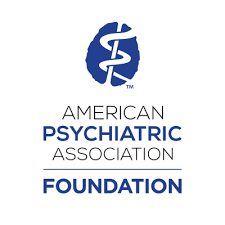
🔎
Their transparency & ratings:
Charity Navigator gives the American Psychiatric Association Foundation a 4-star rating.
“A mentally healthy nation for all.”
American Psychiatric Association Foundation
⚒️
What they do:
The American Psychiatric Association Foundation identifies America’s most critical mental health needs and directs their resources accordingly. For example, they address the mental health of students through their Notice. Talk. Act. at School program, which trains teachers to recognize signs of mental illness, such as bipolar disorder, and provide support. In addition, their Stepping Up Initiative gives counties the tools they need to reduce the number of incarcerated people with mental illness. And, they bring mental health care to underserved communities through their Helping Hands Grants Program. Furthermore, they invest in the future of psychiatry by offering Fellowships to medical students and early-career psychiatrists.
🚀
What they’ve achieved:
Since their founding, the American Psychiatric Association and the American Psychiatric Association Foundation have impacted the lives of thousands of people with mental illness. For example, their Stepping Up Initiative has reached 537 counties across the US And, the Notice. Talk. Act. at School program has been delivered to 166 schools in 42 states since its launch in 2019.
✨
Ways to contribute:
You can make a monetary donation to the American Psychiatric Association Foundation via their website. You can also support the charity by shopping through AmazonSmile or by making a legacy donation as a bequest or gift of stock.
How Can You Select the Best Charities to Support?
The charities on the list are, we deem, the best charities that help combat bipolar disorder. However, you may have a particular charity you want to support. Let’s look at what you can do to ensure your contribution has the most significant impact.
- Check out the charity website. Charities that are worthy of your donations are transparent in their mission and their figures. Familiarize yourself with their history, mission, and values. Their website usually is the best place to start.
- Identify the charity’s mission. Without a goal, the charity is likely to fail. If the charity’s mission isn’t clear, it’s probably worth looking for a charity that does have a clear mission.
- Check if the charity has measurable goals. An effective charity has clear goals. You want to know your donation will help the charity reach its goals. But if it doesn’t have targets, it’s likely to fail or squander your gift. The charity should be able to account for its spending and supply evidence of the work they do.
- Assess the successes or goals the charity has achieved. You wouldn’t invest in a business if it kept missing its targets. In the same way, charities are like this too. If no one is assessing a charity’s progress in reaching its targets, the chances are they’re not making a substantial positive change.
- Check the charity’s financials and stats. Trustworthy organizations will publish financial statements and reports each year. Some might be exempt from having to do so, but they should be able to provide them to public members who are interested in donating.
- Locate sources who work with or benefit from the charity. Word of mouth and first-hand experience of a charity’s work lets you know the charity’s quality. If you’re able to do so, check out the charity for yourself or speak to someone familiar with it. This way, your donation will go to the right place.
How Can You Best Support These Charities?
After you’ve made your decision, it’s time for you to decide on how you’d like to help the charities you’ve chosen. Check how you can help – each charity runs specific programs that have unique aims. Find out what the aim of such programs is and whether they are right for you.
Here are a few ways you can help your chosen charity:
- Donate money. You can find donation pages on the website of most charities. Your donation can be a one-time payment, or you can set it to be deducted regularly at different intervals. You can mostly pay via credit card, but some charities also take PayPal or Bitcoin payments.
- Buy their official merchandise. The charities can also raise money by selling merchandise. So, you can support them by buying the mugs, shirts, caps, pens, pencils, and any other such items they may be selling. Ideally, you should buy as much as you can to share and spread the word about the charity’s activities.
- Engage in volunteer work. As you’ve seen from our descriptions above, some charities engage in a lot of local and grassroots programs. You can help by taking on and organizing the program in your local area.
- Help their fundraising efforts. You can spread the word about the charity in your workplace, school, church, etc., and hold creative fundraising drives on social media or offline within your small circles.
- Share their stories. Most charities have compelling stories that you can share with your audience to attract more people to the cause.
Final Thoughts
Now it is up to you to select the charity that resonates most with you. And whichever charity you end up choosing and contributing to, we are sure that they will immensely appreciate your support. Hopefully, the information within this article has made this selection process a bit easier for you to support charities dedicated to combatting bipolar disorder – based on the causes that matter most to you.
Stay impactful,

PS: Finally, I want to leave you with a thought-provoking TED talk from Dan Pallotta, a leading philanthropic activist and fundraiser, about what is wrong with the way we think about charities – and what we can do about it:
Sources
- Depression and Bipolar Support Alliance: Home
- Depression and Bipolar Support Alliance: About
- Charity Navigator: Depression and Bipolar Support Alliance
- GuideStar: Depression and Bipolar Support Alliance
- Depression and Bipolar Support Alliance: Educational Materials
- Depression and Bipolar Support Alliance: Podcasts
- Depression and Bipolar Support Alliance: Webinars
- Depression and Bipolar Support Alliance: Brochures
- Depression and Bipolar Support Alliance: Support
- Depression and Bipolar Support Alliance: Wellness Toolbox
- Depression and Bipolar Support Alliance: 2021 Annual Report
- Depression and Bipolar Support Alliance: Wellness Tracker
- Depression and Bipolar Support Alliance: Donate
- Depression and Bipolar Support Alliance: Advocacy Center
- Depression and Bipolar Support Alliance: Peer Support Specialists
- National Alliance on Mental Illness: Home
- National Alliance on Mental Illness: Who We Are
- Charity Navigator: National Alliance on Mental Illness
- GuideStar: National Alliance on Mental Illness
- National Alliance on Mental Illness: Peer-to-Peer Education
- National Alliance on Mental Illness: Family Education
- National Alliance on Mental Illness: Provider Education
- National Alliance on Mental Illness: HelpLine
- National Alliance on Mental Illness: Bipolar Disorder
- National Alliance on Mental Illness: Bipolar Disorder: Treatment
- National Alliance on Mental Illness: Bipolar Disorder: Support
- National Alliance on Mental Illness: 2021 Annual Report
- National Alliance on Mental Illness: NAMIWalks Your Way
- National Alliance on Mental Illness: Donate
- National Alliance on Mental Illness: Get Involved
- National Alliance on Mental Illness: Volunteer Opportunities
- Anxiety and Depression Association of America: Anxiety Facts and Statistics
- Anxiety and Depression Association of America: Home
- Charity Navigator: Anxiety and Depression Association of America
- GuideStar: Anxiety and Depression Association of America
- Anxiety and Depression Association of America: Understanding Bipolar Disorder
- Anxiety and Depression Association of America: 2021 Annual Report
- Anxiety and Depression Association of America: Support Groups
- Anxiety and Depression Association of America: Triumph Newsletter
- Anxiety and Depression Association of America: Find a Therapist
- Anxiety and Depression Association of America: Donate
- Anxiety and Depression Association of America: Shop Online
- Anxiety and Depression Association of America: Share your Story
- Brain & Behavior Research Foundation: Home
- Charity Navigator: Brain & Behavior Research Foundation
- GuideStar: Brain & Behavior Research Foundation
- Brain & Behavior Research Foundation: About Us
- Brain & Behavior Research Foundation: Optogenetics
- Brain & Behavior Research Foundation: 2021 Annual Report
- Brain & Behavior Research Foundation: Bipolar Disorder
- Brain & Behavior Research Foundation: Obesity and Mental Health Disorders
- Brain & Behavior Research Foundation: Donate
- Brain & Behavior Research Foundation: Team Up
- Brain & Behavior Research Foundation: Sponsorship
- Mental Health America: Home
- Mental Health America: About
- Charity Navigator: Mental Health America
- GuideStar: Mental Health America
- Mental Health America: B4Stage4
- Mental Health America: Education and Outreach
- Mental Health America: Advocacy Network
- Mental Health America: Public Policy
- Mental Health America: Center for Peer Support
- Mental Health America: Peer Partners
- Mental Health America: Become a Peer Support Specialist
- Mental Health America: Our History
- Mental Health America: 2020 Annual Report
- Mental Health America: Fundraise
- International Bipolar Foundation: Home
- Charity Navigator: International Bipolar Foundation
- GuideStar: International Bipolar Foundation
- International Bipolar Foundation: Bipolar Disorder and Addiction
- International Bipolar Foundation: Bipolar Disorder in Older Age
- International Bipolar Foundation: HUGS for Kids
- International Bipolar Foundation: Caregivers
- International Bipolar Foundation: 2022 Impact Report
- International Bipolar Foundation: Mental Health Awareness Patch
- International Bipolar Foundation: Donate
- International Bipolar Foundation: Volunteer
- International Bipolar Foundation: Upcoming Events
- The Child Mind Institute: Home
- The Child Mind Institute: About Us
- Charity Navigator: Child Mind Institute
- GuideStar: Child Mind Institute
- The Child Mind Institute: Care
- The Child Mind Institute: Education
- The Child Mind Institute: Resources
- The Child Mind Institute: School and Community
- The Child Mind Institute: Bipolar Disorder in Kids
- The Child Mind Institute: The Center for the Developing Brain
- The Child Mind Institute: Healthy Brain Network
- The Child Mind Institute: Autism Center
- The Child Mind Institute: Our Impact
- The Child Mind Institute: 2021 Annual Report
- The Child Mind Institute: Donate
- The Child Mind Institute: Sponsorship
- The Jed Foundation: The Story of Jed
- Charity Navigator: The Jed Foundation
- GuideStar: The Jed Foundation
- The Jed Foundation: Our Work
- The Jed Foundation: Set to Go
- The Jed Foundation: Set to Go: Substance Abuse Prevention
- The Jed Foundation: Social and Emotional Skills
- The Jed Foundation: Set to Go: Bipolar Disorder
- The Jed Foundation: Mental Health is Health
- The Jed Foundation: Jed Campus
- The Jed Foundation: Jed High School
- The Jed Foundation: 2020 Annual Report
- The Jed Foundation: Donate
- The Jed Foundation: Volunteer
- The Jed Foundation: Fundraise
- American Psychiatric Association Foundation: Home
- American Psychiatric Association: Home
- Charity Navigator: American Psychiatric Association Foundation
- American Psychiatric Association Foundation: Notice Talk Act at School
- American Psychiatric Association Foundation: Stepping Up Initiative
- American Psychiatric Association Foundation: Helping Hands Grants
- American Psychiatric Association Foundation: Grants, Fellowships, and Awards
- American Psychiatric Association Foundation: 2021 Annual Report
- American Psychiatric Association Foundation: Donate

